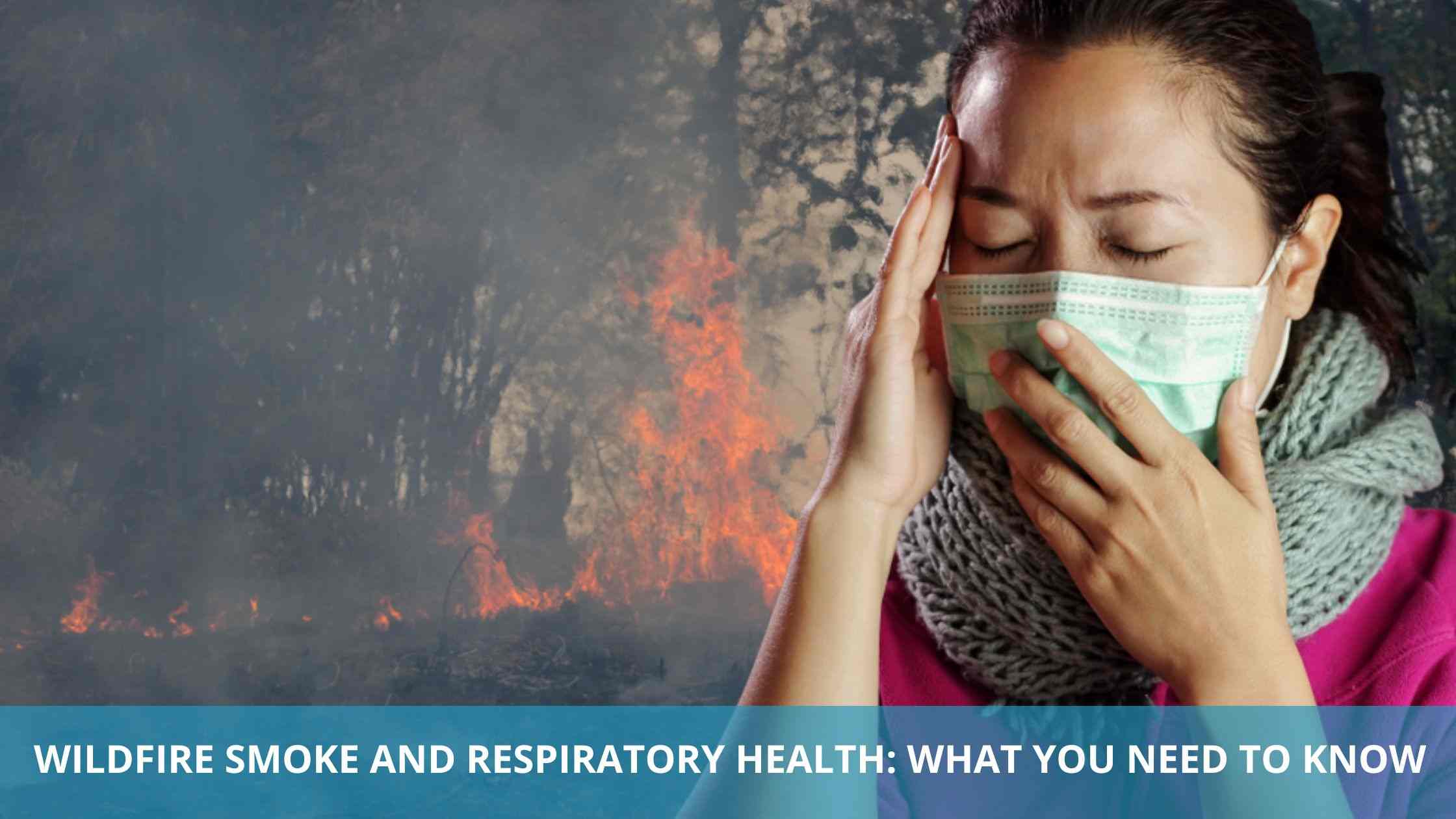Beyond the immediate danger of flames, wildfire smoke introduces a host of health hazards. The fine particles, toxic gases, and chemicals present in the smoke can penetrate deep into the lungs, leading to respiratory issues. Vulnerable groups, such as children, the elderly, and individuals with preexisting respiratory conditions, are particularly at risk.
Why Smoke Inhalation is Dangerous
There are several effects of smoke inhalation on your health, some immediate while others are delayed.
Immediate Effects
- Irritation of the eyes, nose, and throat: Many people experience burning sensations or discomfort almost immediately upon exposure.
- Difficulty breathing: Wildfire smoke can aggravate conditions like asthma or chronic obstructive pulmonary disease (COPD), making it harder to breathe.
Long-Term Risks
- Chronic respiratory conditions: Prolonged exposure increases the likelihood of developing chronic bronchitis or worsening existing conditions.
- Cardiovascular complications: Fine particulate matter in smoke can enter the bloodstream, increasing the risk of heart attacks and strokes.
Effects of Smoke Inhalation on the Respiratory System
Short-Term Impacts
- Acute bronchitis: Persistent coughing, chest disscomfort, and difficulty breathing are common outcomes of smoke inhalation.
- Worsening of pre-existing conditions: Individuals with asthma or bronchitis may experience intensified symptoms, including wheezing and shortness of breath.
Long-Term Effects
- Lung tissue damage: Repeated or prolonged exposure to wildfire smoke can damage lung tissues, reducing overall respiratory function.
- Chronic respiratory diseases: Studies suggest an increased risk of developing conditions like COPD and even lung cancer with ongoing exposure.
Who is at Risk?
- Children and Older Adults: Children's growing lungs and older adults less resilient systems make them more vulnerable to pollutants.
- Individuals with Pre-Existing Health Conditions: Those living with asthma, COPD, or cardiovascular diseases face heightened risks during wildfire events.
Tips to Protect Yourself from Wildfire Smoke
Enhancing Indoor Air Quality
- Use High-Quality Air Purifiers: Invest in air purifiers with HEPA filters to remove harmful particulate matter effectively.
- Seal Your Home: Keep windows, doors, and vents tightly closed during nearby wildfires. Use weather stripping for added protection.
- Avoid Activities That Stir Particles: Refrain from vacuuming or burning candles, as these can worsen indoor air quality.
Personal Protective Measures
- Wear N95 or P100 Respirators: These masks effectively filter out fine particulate matter, offering better protection than cloth masks.
- Limit Exposure: Avoid outdoor activities during heavy smoke. If necessary, minimize time spent outside.
Emergency Preparedness
- Develop a Clear Evacuation Plan: Know evacuation routes and have a go-bag ready with essentials, including important documents and supplies.
- Keep Medical Supplies Accessible: Ensure easy access to critical medications such as inhalers, oxygen tanks, or other prescribed items.
When to Seek Medical Attention
- Persistent cough or chest pain: These could signal serious respiratory issues.
- Difficulty breathing: Seek immediate care if breathing becomes labored, especially for high-risk groups.
Conclusion
Wildfire smoke presents a serious threat to respiratory health, particularly for vulnerable groups like children, the elderly, and individuals with pre-existing conditions. However, by adopting proactive measures, you can protect yourself and your loved ones. Enhancing indoor air quality, using high-quality protective masks, and minimizing outdoor exposure are practical steps that can make a significant difference. Awareness and preparedness are your best allies in reducing the risks associated with wildfire smoke, ensuring better respiratory health and overall wellness for you and your community.
Take Care of Your Respiratory Health
Protect yourself and your loved ones with expert care and guidance from Family Care Centers Medical Group. We offer comprehensive respiratory health screenings and consultations at all our urgent care clinics in Irvine Woodbridge Urgent Care, Fountain Valley Urgent Care, and Costa Mesa Urgent Care, CA.
















